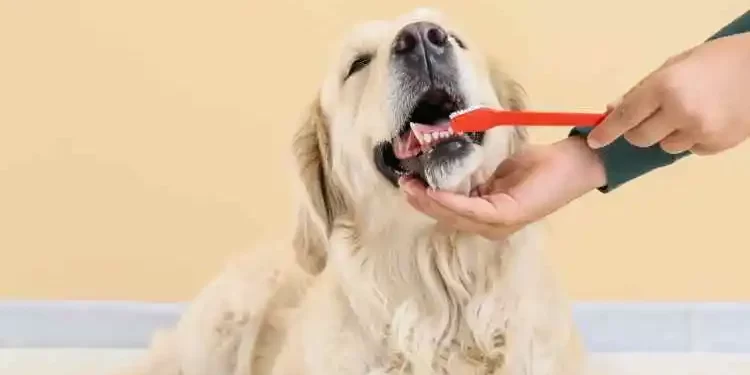Our beloved canine companions bring boundless joy into our lives, and as conscientious pet guardians, it’s imperative to give careful attention to every facet of their welfare, including their dental health. Similar to humans, dogs necessitate consistent dental maintenance to avert discomfort, pain, and the potential onset of serious health complications. This blog will explore the significance of dental care for dogs and provide actionable suggestions for upholding their oral hygiene.
Understanding the Importance of Canine Dental Health
Understanding the value of dental care for dogs is paramount. Regrettably, many pet owners tend to underestimate this aspect of their companion’s well-being, often unaware of the potential ramifications. Disregarding dental hygiene in dogs can precipitate a range of issues, such as:
Plaque and Tartar Build-Up: Just as with humans, dogs also build up plaque and tartar on their teeth over time. If left untreated, this accumulation can lead to gum disease and tooth decay in our furry friends.
Gingivitis: Inflammation of the gums can occur due to bacteria in plaque and tartar. Without proper treatment, gingivitis can develop to periodontitis, an advanced gum disease in dogs. This situation not only results in the loss of teeth but also carries the risk of affecting essential organs in the body.
Bad Breath: While not necessarily a serious health issue, persistent bad breath in dogs can indicate underlying dental problems.
Tooth Decay and Loss: Untreated dental issues can lead to decayed or damaged teeth, potentially requiring extraction and affecting your dog’s quality of life.
Signs of Dental Problems in Dogs
Detecting dental issues in dogs can be challenging, as they may not always exhibit obvious signs of discomfort. However, some common indicators of dental problems include:
- Persistent Bad Breath: This can signify the presence of bacteria and dental issues.
- Changes in Eating Habits: Sudden reluctance to eat hard food or a decrease in appetite may indicate dental pain.
- Pawing at the Mouth: Dogs may paw at their mouth if they’re experiencing dental discomfort.
- Excessive Drooling: An increase in drooling could be a sign of oral health issues.
- Visible Signs of Pain: Watch for whimpering, reluctance to play with toys, or aggression when their mouth is touched.
Tips for Maintaining Your Dog’s Dental Health
Now that you understand the importance of dental care for dogs, let’s explore practical strategies for keeping their teeth and gums healthy:
- Regular Vet Check-Ups: Schedule routine dental check-ups with your veterinarian to assess your dog’s oral health and address any issues promptly. Salt Water Animal Hospital serving Des Moines, offers comprehensive veterinary care for pets, including dental services to ensure optimal oral health.
- Regular Brushing: To maintain your dog’s oral health, make sure to brush their teeth a minimum of 2-3 times per week using a toothbrush and toothpaste specifically designed for dogs. This routine helps eliminate plaque and reduces the risk of tartar accumulation.
- Dental Chews and Toys: Provide your dog with chew toys and dental chews designed to promote dental health by reducing plaque and tartar.
- Healthy Diet: Feed your dog a balanced diet consisting of high-quality dog food and limit treats that may contribute to dental problems.
- Be Observant: Monitor your dog’s behavior and oral health for any changes, and seek veterinary advice if you notice anything unusual.
Conclusion
Ensuring proper dental care is integral to maintaining your dog’s overall health and well-being. By giving due attention to your dog’s dental hygiene and incorporating the recommendations outlined in this article, you can effectively prevent dental problems and promote a joyful, healthy life for your beloved companion. Remember that investing a small effort into your dog’s dental health today can spare you and your pet from encountering more serious issues. Here’s to keeping those canine smiles gleaming and vibrant!
